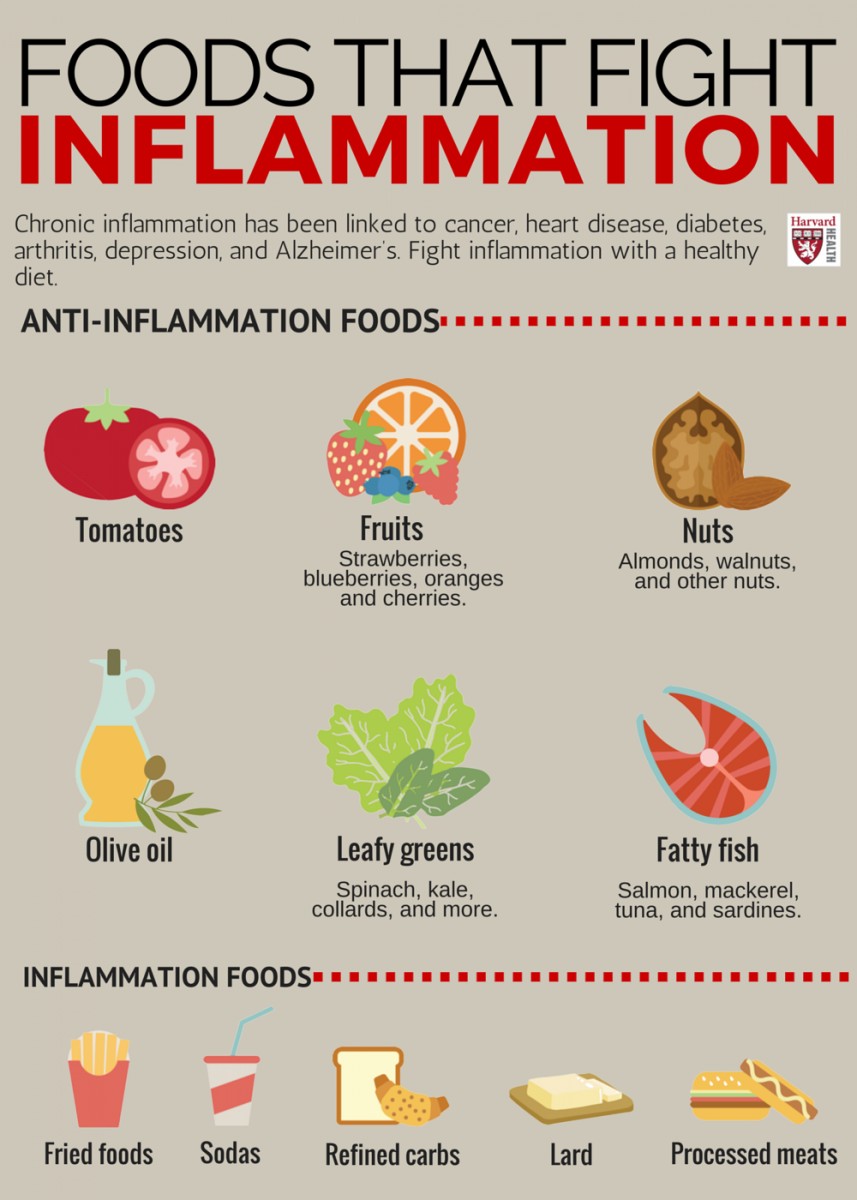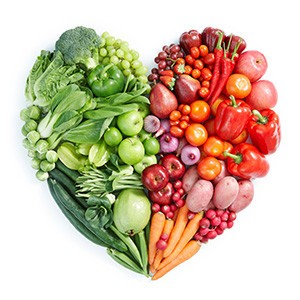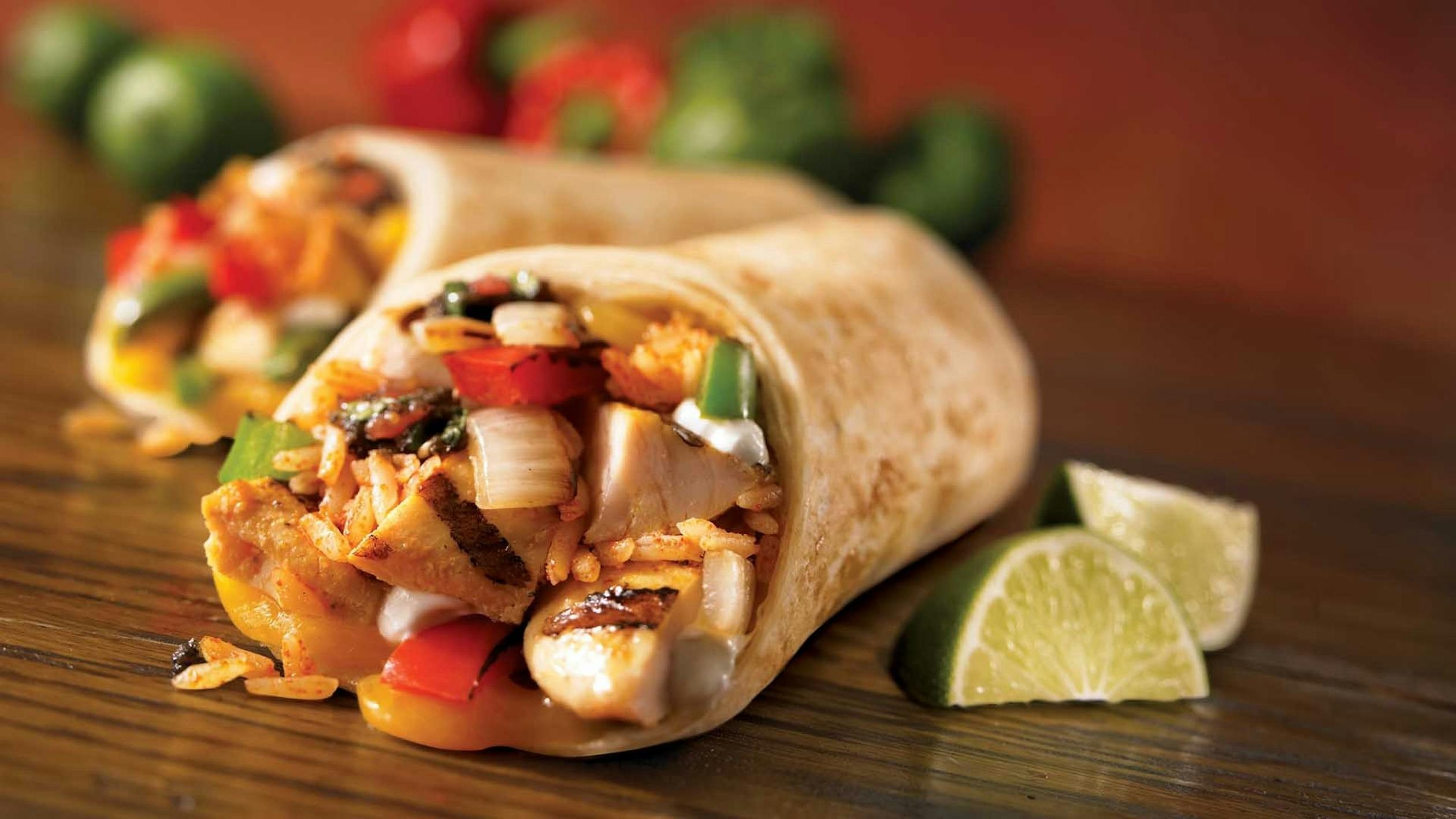Inflammation-causing foods, particularly refined carbs and processed meats, can significantly impact your health; however, choosing the right foods can help combat inflammation. At FOODS.EDU.VN, we provide expert guidance on identifying and avoiding inflammation triggers, helping you to make informed dietary choices. Discover how an anti-inflammatory diet can improve your overall well-being, offering practical advice and delicious alternatives to inflammatory foods.
1. Understanding Inflammation and Its Impact
What is inflammation, and why should you be concerned about it? Inflammation is your body’s natural response to injury or infection, but chronic inflammation can lead to serious health issues. FOODS.EDU.VN delves into the science behind inflammation, explaining how it affects your body and what steps you can take to manage it through diet.
Inflammation is a complex biological response that occurs when your body recognizes harmful stimuli, such as pathogens, damaged cells, or irritants. It is a protective mechanism intended to remove these stimuli and initiate the healing process. However, when inflammation becomes chronic, it can contribute to a wide range of health problems.
1.1. Acute vs. Chronic Inflammation
What’s the difference between acute and chronic inflammation? Acute inflammation is a short-term response to a specific injury or infection. Chronic inflammation, on the other hand, persists over a long period and can be caused by factors like autoimmune disorders, persistent infections, or long-term exposure to irritants. Understanding this distinction is crucial for identifying the root cause of inflammation and taking appropriate action.
Acute inflammation typically resolves within a few days or weeks, whereas chronic inflammation can last for months or even years. Conditions like arthritis, heart disease, and diabetes are often associated with chronic inflammation.
1.2. The Role of Diet in Inflammation
How does your diet influence inflammation? Your diet plays a significant role in controlling inflammation levels in your body. Certain foods can promote inflammation, while others can help reduce it. FOODS.EDU.VN provides expert insights into how specific food components affect inflammatory pathways, empowering you to make informed dietary choices.
For example, foods high in refined sugars and saturated fats can trigger inflammatory responses, while those rich in antioxidants and omega-3 fatty acids can help to suppress inflammation. By understanding these relationships, you can create a personalized anti-inflammatory diet tailored to your specific needs.
1.3. Health Risks Associated with Chronic Inflammation
What are the potential health risks associated with chronic inflammation? Chronic inflammation has been linked to numerous diseases, including heart disease, type 2 diabetes, arthritis, Alzheimer’s disease, and even certain types of cancer. FOODS.EDU.VN emphasizes the importance of managing inflammation to reduce your risk of developing these conditions.
Research has shown that chronic inflammation can damage tissues and organs over time, leading to the development of various chronic diseases. For instance, inflammation in the arteries can contribute to the formation of plaques, increasing the risk of heart attacks and strokes. Similarly, inflammation in the brain has been implicated in the progression of Alzheimer’s disease.
2. Top Foods That Cause Inflammation
Which foods should you avoid to reduce inflammation? Certain foods are known to promote inflammation in the body. FOODS.EDU.VN provides a comprehensive list of these culprits, along with detailed explanations of why they contribute to inflammation and healthier alternatives you can choose.
These foods often share common characteristics, such as being highly processed, high in saturated or trans fats, and low in essential nutrients. By understanding these factors, you can make more informed choices about what you eat.
2.1. Refined Carbohydrates
Why are refined carbohydrates inflammatory? Refined carbohydrates, such as white bread, pastries, and sugary cereals, are quickly broken down into glucose, leading to rapid spikes in blood sugar levels. This can trigger the release of inflammatory compounds called cytokines. FOODS.EDU.VN recommends opting for whole grains like brown rice, quinoa, and whole-wheat bread to help stabilize blood sugar and reduce inflammation.
Refined carbohydrates also lack the fiber and nutrients found in whole grains, further contributing to their inflammatory effects. Fiber helps to slow down the absorption of sugar, preventing rapid blood sugar spikes.
Table: Comparison of Refined and Whole Grains
| Feature | Refined Grains | Whole Grains |
|---|---|---|
| Processing | Heavily processed | Minimally processed |
| Fiber Content | Low | High |
| Nutrient Density | Low | High |
| Impact on Blood Sugar | Rapid spikes | Slow, steady release |
| Inflammatory Effect | High | Low |



2.2. Sugary Drinks
How do sugary drinks contribute to inflammation? Sodas, fruit juices, and other sugar-sweetened beverages are packed with fructose, a type of sugar that can promote inflammation. High fructose consumption has been linked to increased levels of inflammatory markers in the blood. FOODS.EDU.VN suggests replacing sugary drinks with water, herbal teas, or naturally flavored sparkling water to stay hydrated without the inflammatory effects.
Fructose is primarily metabolized in the liver, and excessive intake can lead to non-alcoholic fatty liver disease (NAFLD), which is characterized by chronic inflammation in the liver.
2.3. Processed Meats
Why are processed meats considered inflammatory? Processed meats like hot dogs, sausages, and bacon are high in saturated fats, sodium, and advanced glycation end products (AGEs), all of which can trigger inflammation. These meats often contain additives and preservatives that may also contribute to inflammatory responses. FOODS.EDU.VN advises choosing lean protein sources like chicken, fish, beans, and lentils instead of processed meats.
AGEs are formed when proteins or fats combine with sugars in the bloodstream, a process that is accelerated by high-heat cooking methods like grilling and frying. These compounds can damage tissues and promote inflammation throughout the body.
2.4. Red Meat
How does red meat affect inflammation? Red meat, particularly when cooked at high temperatures, contains high levels of saturated fats and AGEs. These compounds can activate inflammatory pathways in the body. FOODS.EDU.VN recommends limiting red meat consumption and opting for leaner cuts or alternative protein sources to reduce inflammation.
Studies have shown that high red meat consumption is associated with increased levels of inflammatory markers like C-reactive protein (CRP) and interleukin-6 (IL-6).
2.5. Fried Foods
Why are fried foods inflammatory? Fried foods are typically high in trans fats and AGEs, which are known to promote inflammation. The high temperatures used in frying can also create harmful compounds that contribute to inflammation. FOODS.EDU.VN suggests baking, grilling, or steaming foods instead of frying to minimize inflammation.
Trans fats are artificial fats created during the hydrogenation process, which is used to increase the shelf life and stability of oils. These fats have been linked to numerous health problems, including heart disease, insulin resistance, and inflammation.
2.6. Artificial Sweeteners
How do artificial sweeteners impact inflammation? While often marketed as healthy alternatives to sugar, some artificial sweeteners may disrupt gut bacteria, leading to inflammation. FOODS.EDU.VN explores the potential link between artificial sweeteners and inflammation, providing insights into making informed choices about sweeteners.
Artificial sweeteners like aspartame, sucralose, and saccharin have been shown to alter the composition of the gut microbiome, which can affect inflammation levels throughout the body.
2.7. Excessive Alcohol
How does excessive alcohol consumption contribute to inflammation? Excessive alcohol intake can lead to liver damage and inflammation throughout the body. Alcohol metabolism produces toxic byproducts that can trigger inflammatory responses. FOODS.EDU.VN advises moderation in alcohol consumption to minimize its inflammatory effects.
Chronic alcohol consumption can lead to alcoholic liver disease, which is characterized by inflammation, liver cell damage, and fibrosis.
3. Anti-Inflammatory Foods to Include in Your Diet
What foods can help reduce inflammation? Incorporating anti-inflammatory foods into your diet can help counteract the effects of inflammatory foods. FOODS.EDU.VN highlights the best anti-inflammatory foods, explaining their benefits and how to include them in your daily meals.
These foods are typically rich in antioxidants, omega-3 fatty acids, and other beneficial compounds that can help to suppress inflammation and promote overall health.
3.1. Fatty Fish
Why is fatty fish beneficial for reducing inflammation? Fatty fish like salmon, mackerel, tuna, and sardines are rich in omega-3 fatty acids, which have potent anti-inflammatory properties. These fats can help reduce the production of inflammatory compounds in the body. FOODS.EDU.VN recommends including fatty fish in your diet at least twice a week.
Omega-3 fatty acids, particularly EPA and DHA, are essential for brain health, heart health, and immune function. They work by modulating inflammatory pathways and reducing the production of inflammatory molecules.
3.2. Olive Oil
How does olive oil help fight inflammation? Olive oil, especially extra virgin olive oil, contains oleocanthal, a compound with anti-inflammatory properties similar to ibuprofen. It also contains antioxidants that help protect against inflammation. FOODS.EDU.VN advises using olive oil as your primary cooking oil and salad dressing.
Oleocanthal works by inhibiting the activity of cyclooxygenase (COX) enzymes, which are involved in the production of inflammatory prostaglandins.
3.3. Green Leafy Vegetables
Why are green leafy vegetables anti-inflammatory? Spinach, kale, collard greens, and other leafy greens are packed with antioxidants and vitamins that help reduce inflammation. They also provide essential nutrients that support overall health. FOODS.EDU.VN recommends incorporating a variety of leafy greens into your diet.
These vegetables are rich in vitamins A, C, and K, as well as antioxidants like flavonoids and carotenoids, which help to protect against inflammation and oxidative stress.
3.4. Berries
How do berries combat inflammation? Berries like strawberries, blueberries, cherries, and raspberries are rich in antioxidants called anthocyanins, which have powerful anti-inflammatory effects. These compounds can help protect against inflammation and reduce the risk of chronic diseases. FOODS.EDU.VN suggests adding berries to your breakfast, snacks, and desserts.
Anthocyanins are a type of flavonoid that gives berries their vibrant colors. They work by neutralizing free radicals and reducing the production of inflammatory molecules.
3.5. Nuts and Seeds
Why are nuts and seeds beneficial for reducing inflammation? Almonds, walnuts, chia seeds, and flaxseeds are rich in omega-3 fatty acids, antioxidants, and fiber, all of which can help reduce inflammation. FOODS.EDU.VN recommends including a variety of nuts and seeds in your diet as a healthy snack or topping for meals.
Nuts and seeds also contain minerals like magnesium and zinc, which play important roles in immune function and inflammation regulation.
3.6. Tomatoes
How do tomatoes help fight inflammation? Tomatoes are rich in lycopene, an antioxidant with potent anti-inflammatory properties. Cooking tomatoes can increase the bioavailability of lycopene, making it easier for your body to absorb. FOODS.EDU.VN suggests including tomatoes in your sauces, soups, and salads.
Lycopene works by neutralizing free radicals and reducing the production of inflammatory cytokines.
3.7. Spices
Which spices have anti-inflammatory properties? Turmeric, ginger, cinnamon, and garlic are known for their anti-inflammatory properties. Turmeric contains curcumin, a powerful anti-inflammatory compound that can help reduce pain and inflammation. Ginger contains gingerol, which has similar effects. FOODS.EDU.VN recommends using these spices generously in your cooking.
Curcumin works by inhibiting the activity of inflammatory enzymes and reducing the production of inflammatory molecules.
Table: Top Anti-Inflammatory Spices and Their Benefits
| Spice | Active Compound | Anti-Inflammatory Benefits |
|---|---|---|
| Turmeric | Curcumin | Inhibits inflammatory enzymes, reduces pain and swelling |
| Ginger | Gingerol | Reduces inflammation, relieves nausea and pain |
| Cinnamon | Cinnamaldehyde | Lowers blood sugar, reduces inflammation |
| Garlic | Allicin | Boosts immune function, reduces inflammation |
3.8. Avocado
How does avocado help reduce inflammation? Avocados are rich in monounsaturated fats, antioxidants, and fiber, all of which can help reduce inflammation. They also contain compounds that may help protect against arthritis. FOODS.EDU.VN suggests adding avocado to your salads, sandwiches, and smoothies.
Monounsaturated fats are healthy fats that can help to lower LDL cholesterol and reduce the risk of heart disease.
4. Creating an Anti-Inflammatory Meal Plan
How can you design an anti-inflammatory meal plan? Designing an anti-inflammatory meal plan involves incorporating a variety of anti-inflammatory foods while avoiding those that promote inflammation. FOODS.EDU.VN provides sample meal plans, recipes, and tips for creating your own personalized anti-inflammatory diet.
A well-designed anti-inflammatory meal plan should be balanced, nutritious, and sustainable in the long term.
4.1. Breakfast Ideas
What are some anti-inflammatory breakfast options? Start your day with an anti-inflammatory breakfast by choosing options like oatmeal with berries and nuts, a smoothie with spinach, berries, and avocado, or scrambled eggs with vegetables. FOODS.EDU.VN offers a variety of delicious and nutritious breakfast recipes to kickstart your day.
Oatmeal is a good source of fiber, which can help to regulate blood sugar and reduce inflammation.
4.2. Lunch Ideas
What are some anti-inflammatory lunch options? For lunch, consider options like a salad with grilled salmon, olive oil dressing, and a variety of colorful vegetables, a lentil soup with turmeric and ginger, or a whole-grain wrap with hummus, avocado, and leafy greens. FOODS.EDU.VN provides a range of satisfying and anti-inflammatory lunch recipes.
Lentils are a good source of protein and fiber, which can help to keep you feeling full and satisfied.
4.3. Dinner Ideas
What are some anti-inflammatory dinner options? End your day with an anti-inflammatory dinner by choosing options like baked chicken with roasted vegetables, a stir-fry with tofu, vegetables, and turmeric, or a salmon dish with quinoa and steamed greens. FOODS.EDU.VN offers a variety of delicious and anti-inflammatory dinner recipes.
Quinoa is a complete protein source, meaning that it contains all nine essential amino acids.
4.4. Snack Ideas
What are some anti-inflammatory snack options? Choose anti-inflammatory snacks like a handful of almonds or walnuts, a bowl of berries, a sliced apple with almond butter, or a small serving of Greek yogurt with cinnamon. FOODS.EDU.VN provides a variety of healthy and anti-inflammatory snack ideas to keep you satisfied between meals.
Greek yogurt is a good source of protein and probiotics, which can help to support gut health.
Table: Sample Anti-Inflammatory Meal Plan
| Meal | Option 1 | Option 2 |
|---|---|---|
| Breakfast | Oatmeal with berries and nuts | Smoothie with spinach, berries, avocado |
| Lunch | Salad with grilled salmon and veggies | Lentil soup with turmeric and ginger |
| Dinner | Baked chicken with roasted vegetables | Salmon dish with quinoa and steamed greens |
| Snack | Handful of almonds or walnuts | Bowl of berries |
5. Lifestyle Factors to Support Anti-Inflammation
What lifestyle changes can support an anti-inflammatory diet? In addition to diet, other lifestyle factors can impact inflammation levels in your body. FOODS.EDU.VN explores the importance of exercise, sleep, stress management, and hydration in supporting an anti-inflammatory lifestyle.
These lifestyle factors can work synergistically with your diet to promote overall health and reduce inflammation.
5.1. Regular Exercise
How does exercise help reduce inflammation? Regular physical activity can help reduce inflammation by improving circulation, reducing stress, and promoting a healthy weight. Aim for at least 30 minutes of moderate-intensity exercise most days of the week. FOODS.EDU.VN provides tips for incorporating exercise into your daily routine.
Exercise can also help to improve insulin sensitivity, which can reduce the risk of type 2 diabetes and other chronic diseases.
5.2. Adequate Sleep
Why is sleep important for managing inflammation? Lack of sleep can increase inflammation levels in the body. Aim for 7-8 hours of quality sleep each night to support your immune system and reduce inflammation. FOODS.EDU.VN offers advice on improving your sleep habits.
Sleep deprivation can disrupt the balance of hormones in your body, leading to increased levels of inflammatory cytokines.
5.3. Stress Management
How does stress impact inflammation? Chronic stress can contribute to inflammation by activating the body’s stress response system. Practice stress-reducing techniques like meditation, yoga, or deep breathing exercises to help manage stress and reduce inflammation. FOODS.EDU.VN provides resources for learning effective stress management strategies.
Stress can trigger the release of cortisol, a hormone that can suppress the immune system and increase inflammation over time.
5.4. Hydration
Why is hydration important for reducing inflammation? Staying hydrated is essential for overall health and can help reduce inflammation by supporting kidney function and promoting detoxification. Aim to drink at least 8 glasses of water per day. FOODS.EDU.VN emphasizes the importance of hydration for managing inflammation.
Water helps to flush out toxins and waste products from your body, which can reduce the burden on your immune system and lower inflammation levels.
6. Expert Opinions and Research on Inflammation
What do experts and research say about inflammation? FOODS.EDU.VN compiles insights from leading nutritionists, doctors, and researchers on the role of diet and lifestyle in managing inflammation. We reference scientific studies and expert opinions to provide you with the most accurate and up-to-date information.
These insights can help you to make informed decisions about your health and well-being.
6.1. Studies Linking Diet to Inflammation
What do studies reveal about the link between diet and inflammation? Numerous studies have shown a direct link between diet and inflammation levels in the body. For example, a study published in the American Journal of Clinical Nutrition found that a diet high in refined carbohydrates, processed meats, and sugary drinks was associated with increased levels of inflammatory markers. FOODS.EDU.VN references these studies to support our recommendations.
These studies provide strong evidence that dietary choices can have a significant impact on inflammation and overall health.
6.2. Expert Recommendations for an Anti-Inflammatory Diet
What do experts recommend for an anti-inflammatory diet? Experts recommend focusing on whole, unprocessed foods like fruits, vegetables, whole grains, lean proteins, and healthy fats. They also advise limiting or avoiding refined carbohydrates, processed meats, sugary drinks, and fried foods. FOODS.EDU.VN aligns with these expert recommendations to provide you with practical and effective dietary advice.
Experts also emphasize the importance of personalization, as individual responses to different foods can vary.
6.3. The Role of the Gut Microbiome in Inflammation
How does the gut microbiome influence inflammation? The gut microbiome, the community of microorganisms living in your digestive tract, plays a crucial role in regulating inflammation. A healthy gut microbiome can help reduce inflammation by producing beneficial compounds and supporting immune function. FOODS.EDU.VN explores the link between gut health and inflammation.
Probiotics, prebiotics, and a diet rich in fiber can help to promote a healthy gut microbiome.
7. Practical Tips for Implementing an Anti-Inflammatory Diet
How can you make the switch to an anti-inflammatory diet? Transitioning to an anti-inflammatory diet can seem daunting, but it doesn’t have to be. FOODS.EDU.VN provides practical tips and strategies for making gradual changes to your diet and lifestyle.
These tips can help you to stay motivated and make sustainable changes that will benefit your health in the long term.
7.1. Start Slowly
Why is it important to make gradual changes? Instead of making drastic changes all at once, start by making small, manageable changes to your diet. For example, you could start by replacing sugary drinks with water, adding a serving of vegetables to each meal, or swapping refined grains for whole grains. FOODS.EDU.VN recommends taking a step-by-step approach to avoid feeling overwhelmed.
Small changes can add up over time and lead to significant improvements in your health.
7.2. Read Food Labels
How can reading food labels help you make better choices? Get in the habit of reading food labels to identify hidden sources of inflammatory ingredients like refined sugars, trans fats, and artificial additives. FOODS.EDU.VN provides guidance on how to interpret food labels and make informed choices.
Pay attention to serving sizes, nutrient content, and ingredient lists to make the best choices for your health.
7.3. Plan Your Meals
Why is meal planning important for an anti-inflammatory diet? Planning your meals in advance can help you stay on track with your anti-inflammatory diet by ensuring that you have healthy options readily available. FOODS.EDU.VN offers meal planning templates and recipe ideas to help you get started.
Meal planning can also help you to save time and money by reducing impulse purchases and food waste.
7.4. Cook at Home More Often
How does cooking at home support an anti-inflammatory diet? Cooking at home allows you to control the ingredients and cooking methods used in your meals, making it easier to avoid inflammatory foods and incorporate anti-inflammatory ones. FOODS.EDU.VN provides a variety of delicious and easy-to-follow recipes.
Cooking at home can also be a fun and rewarding way to improve your health and connect with loved ones.
8. Addressing Common Misconceptions About Inflammation
What are some common misconceptions about inflammation? There are many misconceptions about inflammation and how to manage it. FOODS.EDU.VN addresses these myths and provides accurate information to help you make informed decisions about your health.
Clearing up these misconceptions can help you to avoid making mistakes that could undermine your efforts to reduce inflammation.
8.1. Myth: Inflammation Is Always Bad
Why is it important to understand that inflammation is not always negative? While chronic inflammation is harmful, acute inflammation is a necessary part of the healing process. It helps your body fight off infections and repair injuries. FOODS.EDU.VN clarifies the difference between acute and chronic inflammation.
Understanding this distinction can help you to appreciate the importance of inflammation in certain situations.
8.2. Myth: Anti-Inflammatory Diets Are Restrictive
Why is it important to dispel the myth that anti-inflammatory diets are restrictive? An anti-inflammatory diet doesn’t have to be restrictive or boring. There are plenty of delicious and satisfying foods that can help reduce inflammation. FOODS.EDU.VN provides a variety of recipes and meal ideas to demonstrate the versatility of an anti-inflammatory diet.
Focusing on adding healthy foods to your diet, rather than simply restricting unhealthy ones, can make the process more enjoyable and sustainable.
8.3. Myth: Supplements Are a Substitute for a Healthy Diet
Why should you rely on whole foods rather than supplements? While certain supplements may have anti-inflammatory properties, they are not a substitute for a healthy diet and lifestyle. Whole foods provide a wider range of nutrients and compounds that work synergistically to promote health. FOODS.EDU.VN emphasizes the importance of prioritizing whole foods over supplements.
Supplements can be a useful addition to a healthy diet, but they should not be relied upon as the sole source of nutrients.
9. Potential Challenges and How to Overcome Them
What challenges might you face when adopting an anti-inflammatory diet? Adopting an anti-inflammatory diet can present certain challenges, such as navigating social situations, dealing with cravings, and staying motivated. FOODS.EDU.VN provides strategies for overcoming these challenges and staying on track with your health goals.
These strategies can help you to maintain a healthy lifestyle even when faced with obstacles.
9.1. Social Situations
How can you navigate social situations while maintaining an anti-inflammatory diet? Social gatherings often involve foods that are high in inflammatory ingredients. Plan ahead by offering to bring a healthy dish to share, choosing healthier options from the menu, or politely declining foods that don’t align with your dietary goals. FOODS.EDU.VN provides tips for navigating social situations without compromising your health.
It can also be helpful to communicate your dietary needs to your friends and family in advance so that they can support you.
9.2. Cravings
How can you manage cravings for inflammatory foods? Cravings for inflammatory foods can be difficult to resist, especially when you’re first starting out. Try to identify the triggers for your cravings and find healthy alternatives that satisfy your cravings without promoting inflammation. FOODS.EDU.VN offers tips for managing cravings and making healthier choices.
It can also be helpful to practice mindful eating, which involves paying attention to your body’s hunger and fullness cues and savoring each bite.
9.3. Staying Motivated
How can you stay motivated on an anti-inflammatory diet? Staying motivated on an anti-inflammatory diet requires setting realistic goals, tracking your progress, and celebrating your successes. Find a support system of friends, family, or online communities to help you stay accountable and motivated. FOODS.EDU.VN provides resources for staying motivated and achieving your health goals.
It can also be helpful to focus on the positive benefits of your diet, such as increased energy, improved mood, and reduced pain and inflammation.
10. FAQ: Addressing Your Questions About Inflammatory Foods
What are some frequently asked questions about inflammatory foods? FOODS.EDU.VN answers some of the most common questions about inflammatory foods to provide you with clear and concise information.
These FAQs can help you to better understand the topic of inflammation and make informed decisions about your health.
10.1. Can Certain Foods Really Cause Inflammation?
Yes, certain foods can indeed trigger inflammation in the body. Foods high in refined sugars, saturated fats, and processed ingredients are known to promote inflammatory responses. Avoiding these foods can help reduce overall inflammation.
10.2. How Quickly Can Diet Changes Affect Inflammation?
Dietary changes can start affecting inflammation levels within a few weeks. Consistent adherence to an anti-inflammatory diet can lead to noticeable improvements in symptoms and overall health over time.
10.3. Are All Fats Inflammatory?
No, not all fats are inflammatory. Healthy fats like omega-3 fatty acids, monounsaturated fats, and polyunsaturated fats can actually help reduce inflammation. Avoid trans fats and limit saturated fats to minimize inflammatory effects.
10.4. Can I Still Eat My Favorite Foods in Moderation?
Moderation is key. Occasional indulgences in your favorite foods are fine as long as the majority of your diet consists of anti-inflammatory foods. Focus on balance and making healthier choices most of the time.
10.5. What Are Some Signs That I Have Chronic Inflammation?
Signs of chronic inflammation can include fatigue, joint pain, digestive issues, skin problems, and frequent infections. If you suspect you have chronic inflammation, consult with a healthcare professional.
10.6. Can Supplements Help Reduce Inflammation?
Certain supplements like omega-3 fatty acids, curcumin, and ginger may help reduce inflammation. However, it’s essential to consult with a healthcare provider before starting any new supplement regimen.
10.7. How Does Stress Affect Inflammation?
Stress can significantly impact inflammation levels in the body. Chronic stress can trigger inflammatory responses and exacerbate existing conditions. Managing stress through techniques like meditation, yoga, and deep breathing can help reduce inflammation.
10.8. Is Exercise Important for Managing Inflammation?
Yes, regular exercise is crucial for managing inflammation. Physical activity helps reduce stress, improve circulation, and promote a healthy weight, all of which contribute to lower inflammation levels.
10.9. How Does Sleep Affect Inflammation?
Lack of sleep can increase inflammation levels in the body. Aim for 7-8 hours of quality sleep each night to support your immune system and reduce inflammation.
10.10. Where Can I Find More Information About Anti-Inflammatory Diets?
For more in-depth information and resources on anti-inflammatory diets, visit FOODS.EDU.VN. We offer a wealth of articles, recipes, and expert advice to help you make informed choices and improve your health.
Ready to take control of your health and reduce inflammation through diet? Visit FOODS.EDU.VN today for more information, delicious recipes, and expert guidance. Our comprehensive resources will empower you to make informed choices and create a personalized anti-inflammatory lifestyle.
Address: 1946 Campus Dr, Hyde Park, NY 12538, United States
WhatsApp: +1 845-452-9600
Website: foods.edu.vn

